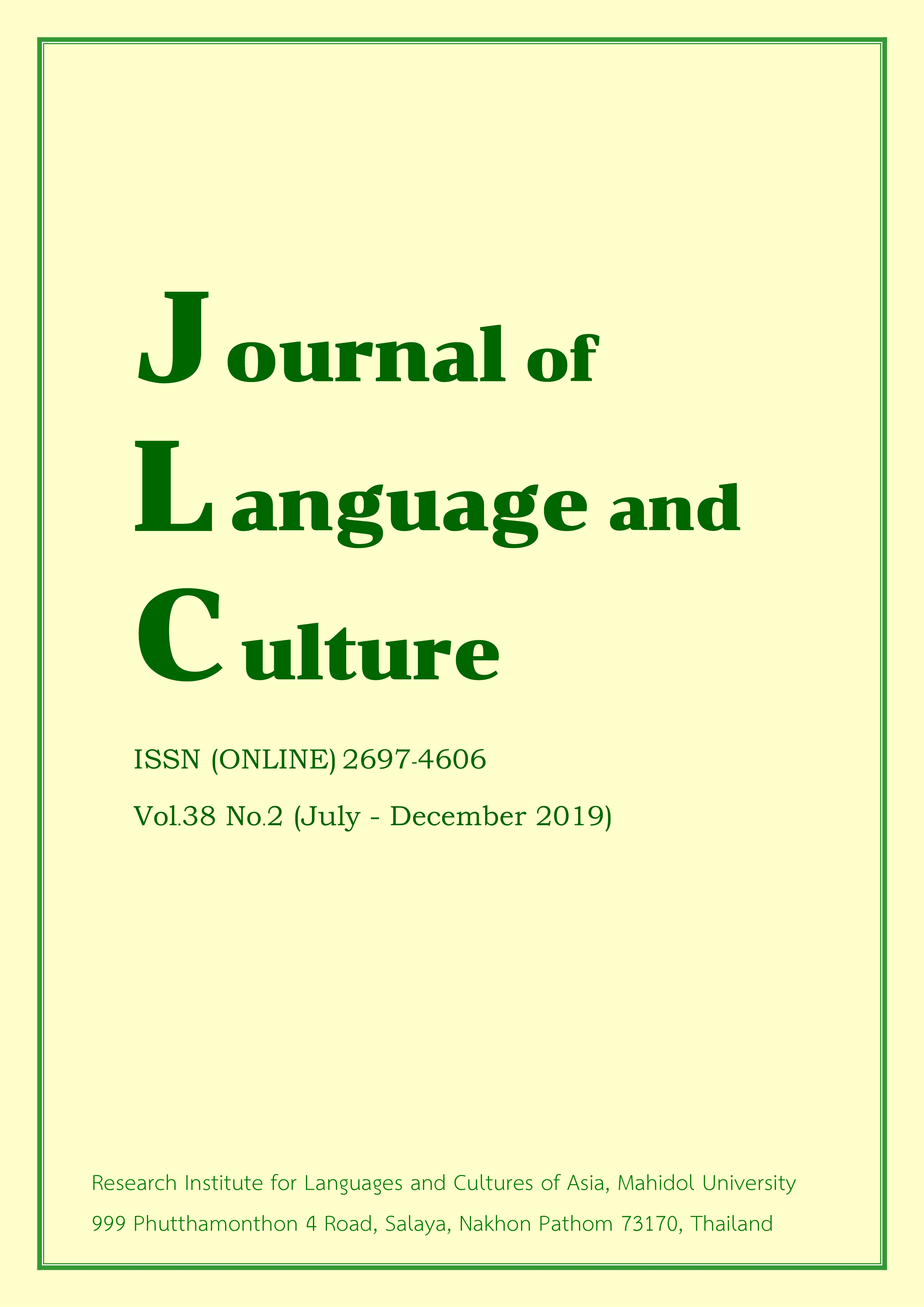The phonological interference of Patani Malay and Thai in English on grade 4 students who speak Patani Malay as mother tongue
Main Article Content
Abstract
Patani Malay speakers are exposed to a multi-lingual context. They speak Patani Malay as their mother tongue and they are exposed to Thai as the national language. They also learn Jawi and Rumi script at religious schools. Furthermore, they are obliged to learn to recite the Quran which is written in Arabic. Thus, it is possible that Patani Malay speakers have advantages in pronouncing different languages.
This study attempts to identify the phonological features of Patani Malay and Thai that interfere with English spoken by Patani Malay speaking elementary students and the factors that cause them in recognizing and producing English words, stress and intonation. Language contact and language interference were employed as theoretical frameworks. The instrument used for collecting the data was a two-fold test to examine the interference, namely a recognition test and the production test.
The findings reveal that the phonological features of the languages that Patani Malay speakers are exposed to have both positive and negative transfer effects in particular the Patani Malay language (PM) has a positive influence on pronunciation of simple initial consonants in English—the problematic sounds were fricative and affricate sounds. The Thai and Arabic phonology familiar to PM speakers helped in pronouncing simple final consonants—the problematic sounds were fricative, affricates, and stops. As for negative transfer, Patani Malay speaking students had difficulties in pronouncing initial and final clusters because there are limited clusters in their exposed language. Additionally, Thai is more influence on Patani Malay speakers when they pronounce in the aspects of vowels, stress and intonation.
Article Details
The articles featured in the Journal of Language and Culture (JLC) constitute academic works representing the viewpoints of the respective author(s). It is crucial to note that these opinions do not necessarily reflect those of the Editorial Board.
All articles published in JLC are released under the Creative Commons Attribution 4.0 International License (CC BY 4.0). This license grants permission for unrestricted use, distribution, and reproduction in any medium, provided proper credit is given to the original author(s) and the source.


